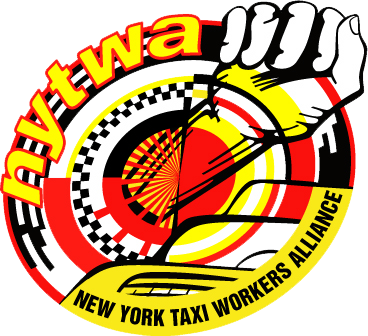NYC Comptroller Scott Stringer Announces Support for NYTWA's Medallion Debt Forgiveness Plan
NYC Comptroller Scott Stringer to Announce Support for NYTWA's Medallion Debt Forgiveness Plan
“For decades, driving a cab in New York City was a road to the middle class for immigrants from around the world. But today, the medallion that once promised prosperity and stability is now a financial sinkhole. The taxi medallion crisis is a test of our commitment to fighting poverty and preserving pathways to the American Dream,” said New York City Comptroller Scott M. Stringer. “This breakthrough proposal from the Taxi Workers Alliance offers a responsible and necessary approach to relieve crushing debt for drivers and reduce ballooning costs for taxpayers. Predatory lenders took drivers for a ride and left families in a wreckage of financial distress and despair. My office has vetted the proposal from the New York Taxi Workers Alliance and found it fiscally sound. We have a fiscal and moral obligation to make this right—and embracing this plan is a start.”
Click here for NYTWA press release
NYTWA Executive Director Bhairavi Desai said: "We thank Comptroller Stringer for giving our proposal serious attention and applying the time and resources to properly vet its fiscal soundness and policy. We have put together an approach that will allow our families to survive this nightmare, and also allow the city to implement a solution that is low-cost and low-risk. The truth is, the cost of what we need is low - in the worst case scenario, an average $4 million per year over 20 years for a city with a $90 billion annual budget, and where there is already a sitting surplus of $40 million in an industry-specific fund. We have always known that the city not supporting the survival of 6,000 families, and a 100-plus industry that employs over 20,000 workers has never really been about money. But to have the backing of the chief financial officer of the city say the proposal has been vetted and found sound gives us tremendous hope after months of a deafening silence. City Hall can't keep up the charade that "it's the budget, stupid." It's time for the Mayor to follow the Comptroller's lead and move forward with debt restructuring that will save our city's iconic taxi industry and lift thousands of struggling families out of crisis, all at little cost to the city."
NYTWA'S PROPOSAL: We propose to have the city act as a backstop for loans that are restructured to $125,000 and refinanced at no more than 20 years at $757 per month (4% interest rate.) If the loan is delinquent and the medallion is foreclosed and put up for a public auction, the city would place a minimum bid equal to the balance on the $125K at the time of foreclosure and if no one bids higher, only then the city would purchase the medallion and then could sell it to the second highest bidder.
COST TO CITY: We have built a financial tool to assess the potential cost to the city for acting as a backstop. We identify the main factors for assessment: number of loans; probability of foreclosure; market value of medallion if the city has to purchase back foreclosed medallions below market value and then resell them. Even in the highest risk scenario: 6,000 underwater loans, a foreclosure rate of 5%, and a stagnant medallion market value of $75,000, the NET COST to the city as backstop under our proposal would be only $75 Million over 20 years; with $60 Million over the first five years.
For context and comparison, as of Summer 2020, the surplus in the Taxicab Improvement Fund had reached $40 Million. The cost of damages estimated by the New York State Attorney General in a notice of claim filed against the City of New York for defrauding medallion owners during 2002 to 2014 auctions was for $850 Million. While other backstop proposals have envisioned the city guaranteeing 20% on every individual loan, our proposal limits the city’s exposure to $125k loan balances are manageable for borrowers and will be well collateralized when the medallion market stabilizes. Our proposal also spreads out any potential cost to the city over 20 years, with maximum cost over the first five years.

